
Since the National Highway Traffic Safety Administration (NHTSA) was established in 1970, manufacturers of motor vehicles and parts have been required by law to comply with NHTSA safety standards and issue recalls when safety-related defects are discovered.
Due in part to the internet and the increasing spread of information among consumers, recalls have increased in frequency since the mid-1990s. Half of the 14 biggest auto recalls of all time were announced in the last 10 years, and in 2016, the number of vehicles recalled in the United States reached an all-time high.
Over time, the average age of recalled vehicles has risen from about 24 months in 1980 to 50 to 60 months today. Many of the vehicles involved in the biggest auto recalls of all time are among the longest-tenured brands. Here is a list of the longest-running car models in history.
Based on data collected from the NHTSA’s recall database, 24/7 Wall St. identified the 14 biggest car recalls of all time. In the case of the 1981 Ford recall, while the automaker never technically issued a recall of its vehicles, it is considered by the NHTSA to be a type of recall, and we treated it as such.
Many of the biggest auto recalls have been linked to dozens of deaths, with the largest tolls coming from faulty ignition switches in GM vehicles and pedal entrapment in Toyota cars. For more information on deadly lapses in car safety precautions, see this list of the deadliest cars in history.
Several of the largest auto recalls stem from faulty airbags made by former Japanese manufacturer Takata. The company’s defective airbags, which had the potential to blast hot shrapnel into the car when deployed and have been linked to at least 11 deaths to date, were installed in some 40 million vehicles. The scandal led to major recalls from automakers such as Honda and Fiat Chrysler and earned Takata the top spot on the list of companies with the worst reputations in 2018.
Click here to learn more about the biggest auto recalls of all time.
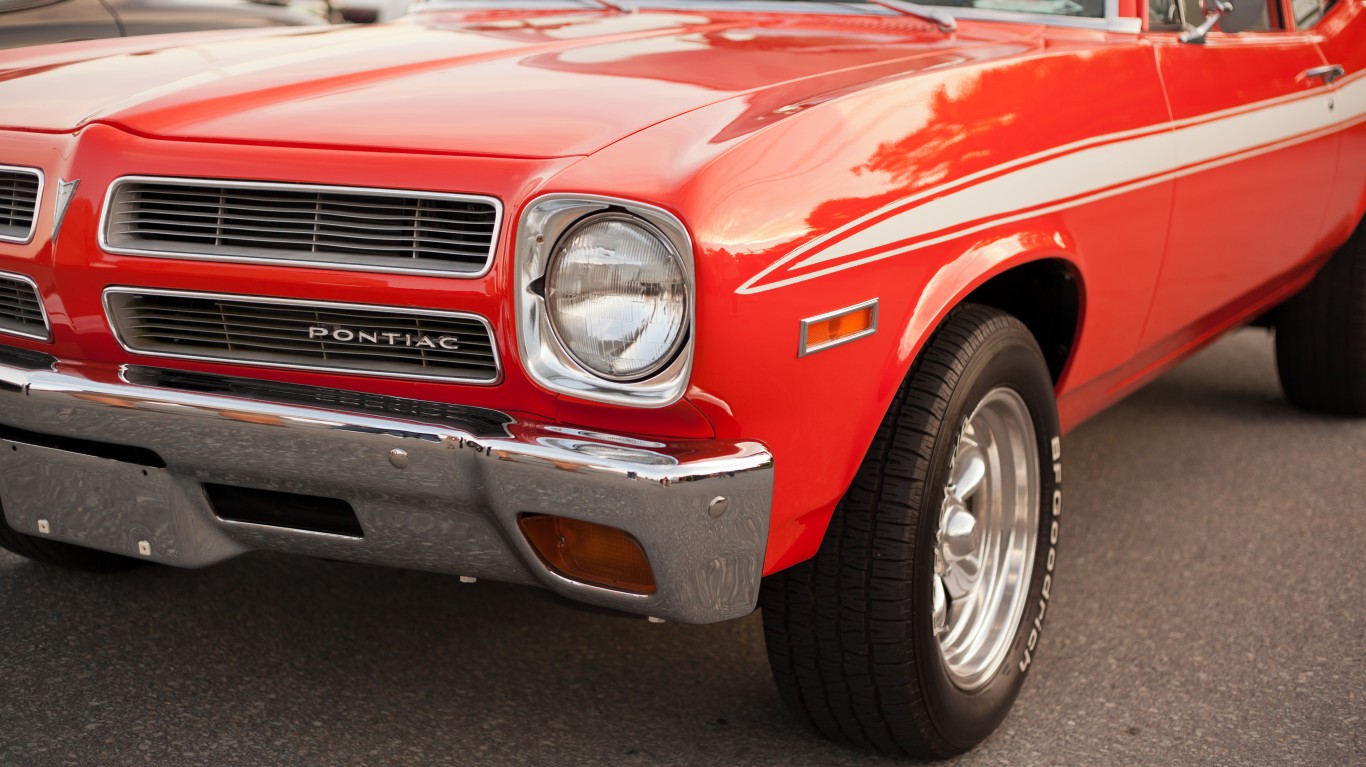
14. General Motors (1973)
> Vehicles affected: 3.7 million
> Issue: Stones entering engine compartment
> Components affected: Underbody shields
In 1973, GM recalled 3.7 million Buick, Chevrolet, Oldsmobile, and Pontiac cars from the 1971 and 1972 model years. The recalled vehicles had the potential to scoop up loose stones or gravel when driving on unpaved roads, which could then become lodged in the steering coupling and make steering more difficult for the driver.
[in-text-ad]
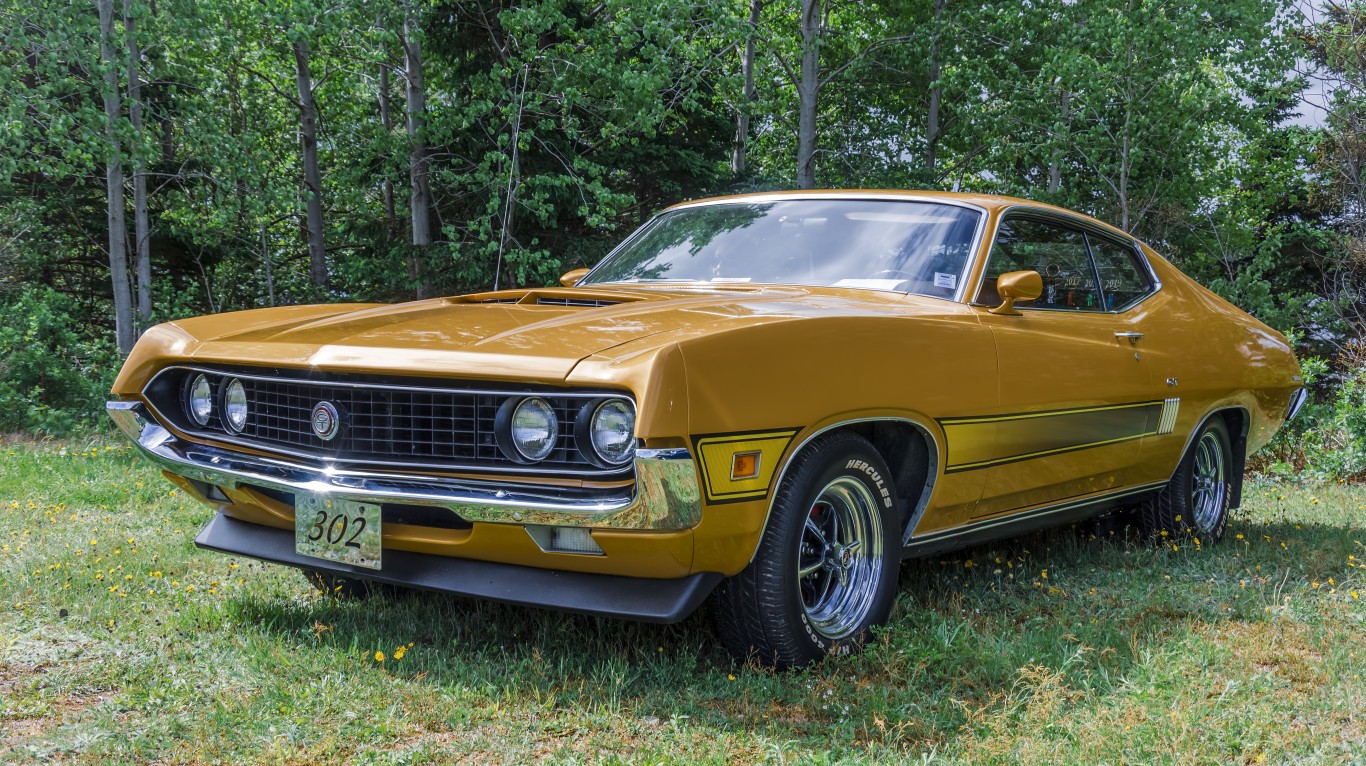
13. Ford Motor Company (1972)
> Vehicles affected: 4.1 million
> Issue: Connecting part in seat belt breaking from wear
> Components affected: Seat belts
In 1972, Ford Motor Company announced the recall of 4.1 million vehicles from the 1970 and 1971 model years due to faulty seat belts. The recall was to replace a small piece called a grommet, which could break and make it difficult or impossible to lock in the shoulder seat belt.

12. Chrysler (2015)
> Vehicles affected: 4.1 million
> Issue: Airbags sending shrapnel into vehicle
> Components affected: Airbags
Fiat Chrysler announced in May 2015 the recall of about 4.1 million vehicles with faulty airbags. The defective airbags had the potential to blast hot shrapnel into the car when deployed, and to date they have been linked to at least 11 deaths and more than 100 injuries. The announcement was part of a series of recalls by Fiat Chrysler and other major automakers related to the 40 million vehicles with malfunctioning airbags supplied by former Japapanese airbag manufacturer Takata.

11. Toyota (2009)
> Vehicles affected: 4.4 million
> Issue: Floor mats can cause pedal to stick and car to accelerate
> Components affected: Vehicle speed control
Toyota announced in 2009 the recall of 4.4 million vehicles for pedal entrapment, where the accelerator pedal could become stuck in the floor mat, causing the vehicle to accelerate. From 2000 to 2010, the NHTSA received more than 6,200 complaints, including 89 deaths and 57 injuries, related to sudden acceleration in Toyota vehicles.
[in-text-ad-2]
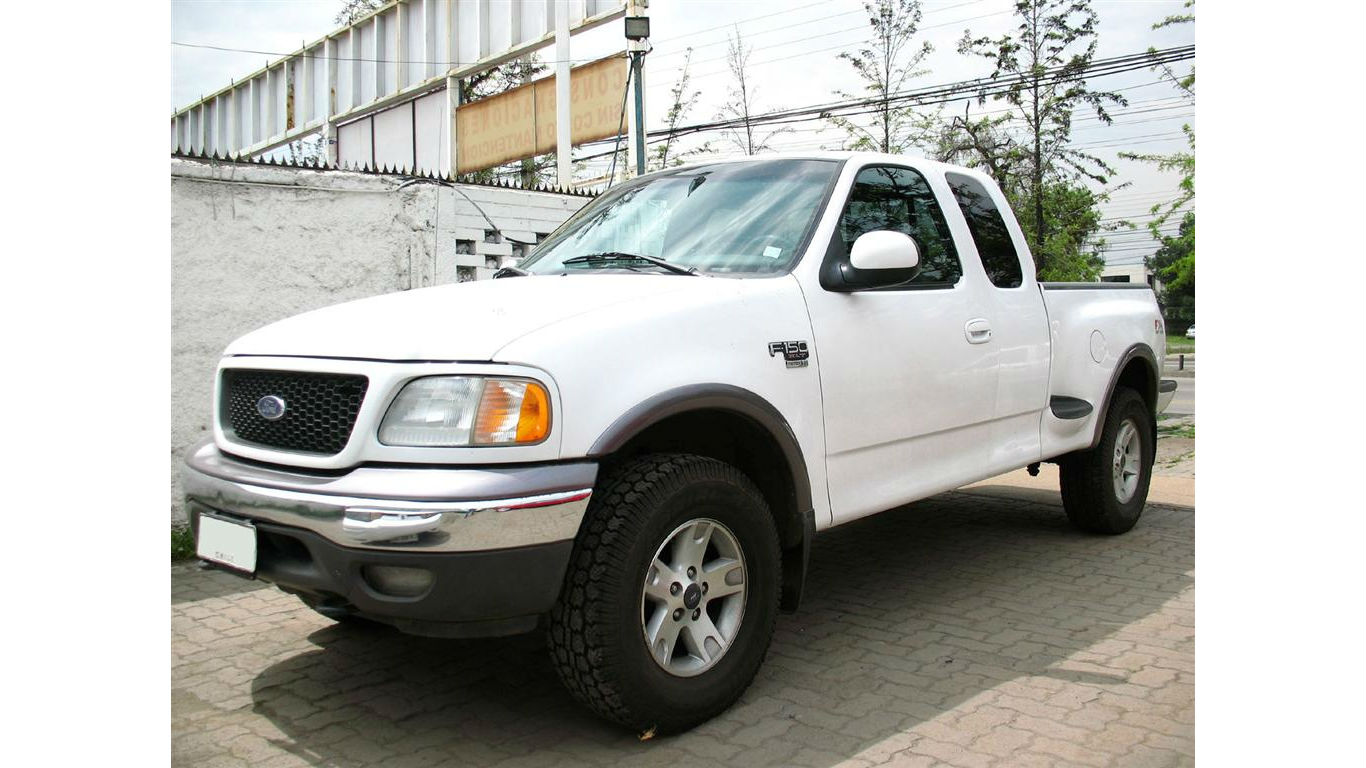
10. Ford Motor Company (2005)
> Vehicles affected: 4.5 million
> Issue: Corroded speed control deactivation switch could cause engine fire
> Components affected: Cruise control
In September 2005, Ford Motor Company announced the recall of 4.5 million light trucks and SUVs. The recall was announced after the company discovered that in some of its vehicles brake fluid could leak into and corrode the cruise control deactivation system, which could ultimately result in an engine fire. Affected vehicles include the Ford F-150s, Ford Expeditions, Lincoln Navigators, and Ford Broncos for the 1994 through 2002 model years.
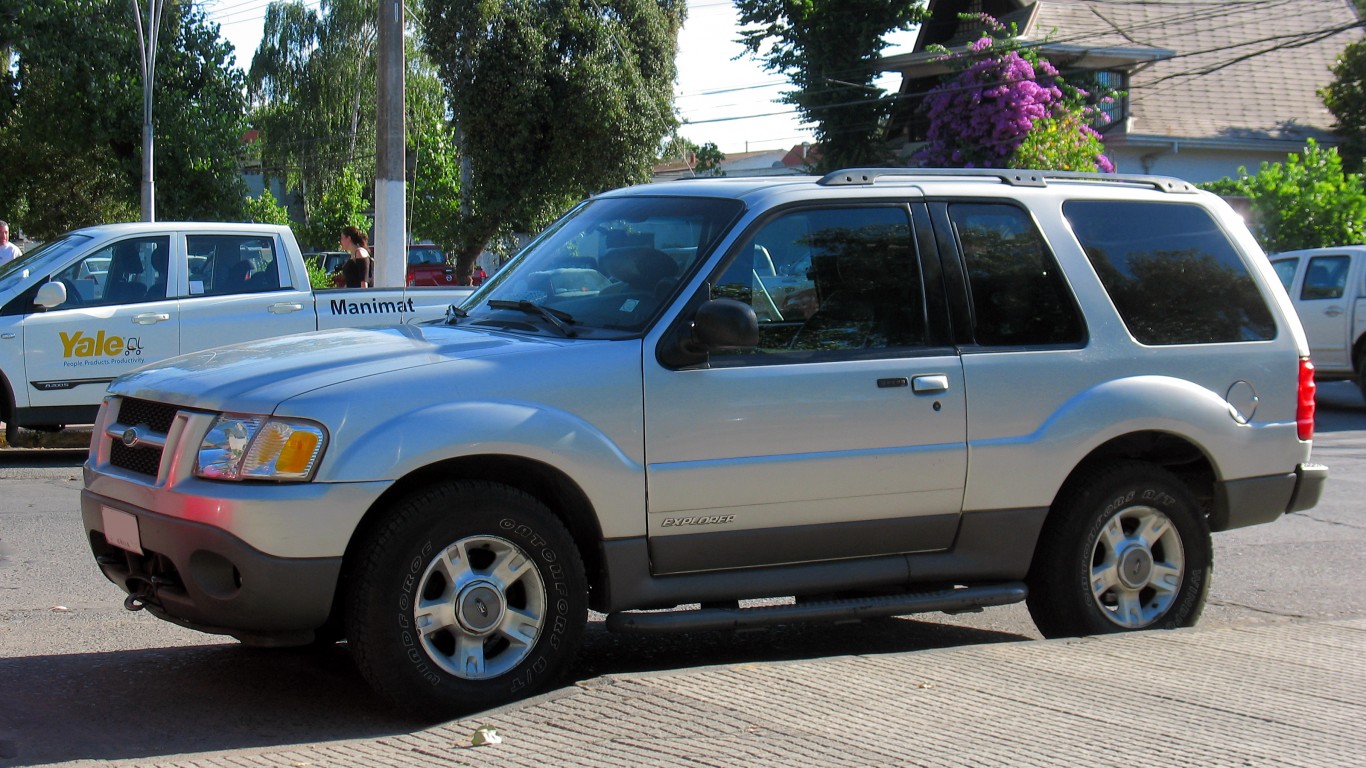
9. Ford Motor Company (2009)
> Vehicles affected: 4.5 million
> Issue: Overheated speed control deactivation switch could cause fire
> Components affected: Cruise control
Ford Motor Company announced in October 2009 the recall of 4.5 million vehicles due to a faulty cruise control deactivation switch that can leak hydraulic fluid, overheat, smoke, and burn. The malfunctioning switch can ultimately cause a fire, even when the car is off and unattended. The announcement was one in a series of recalls related to defective switches supplied by Texas Instruments.
[in-text-ad]
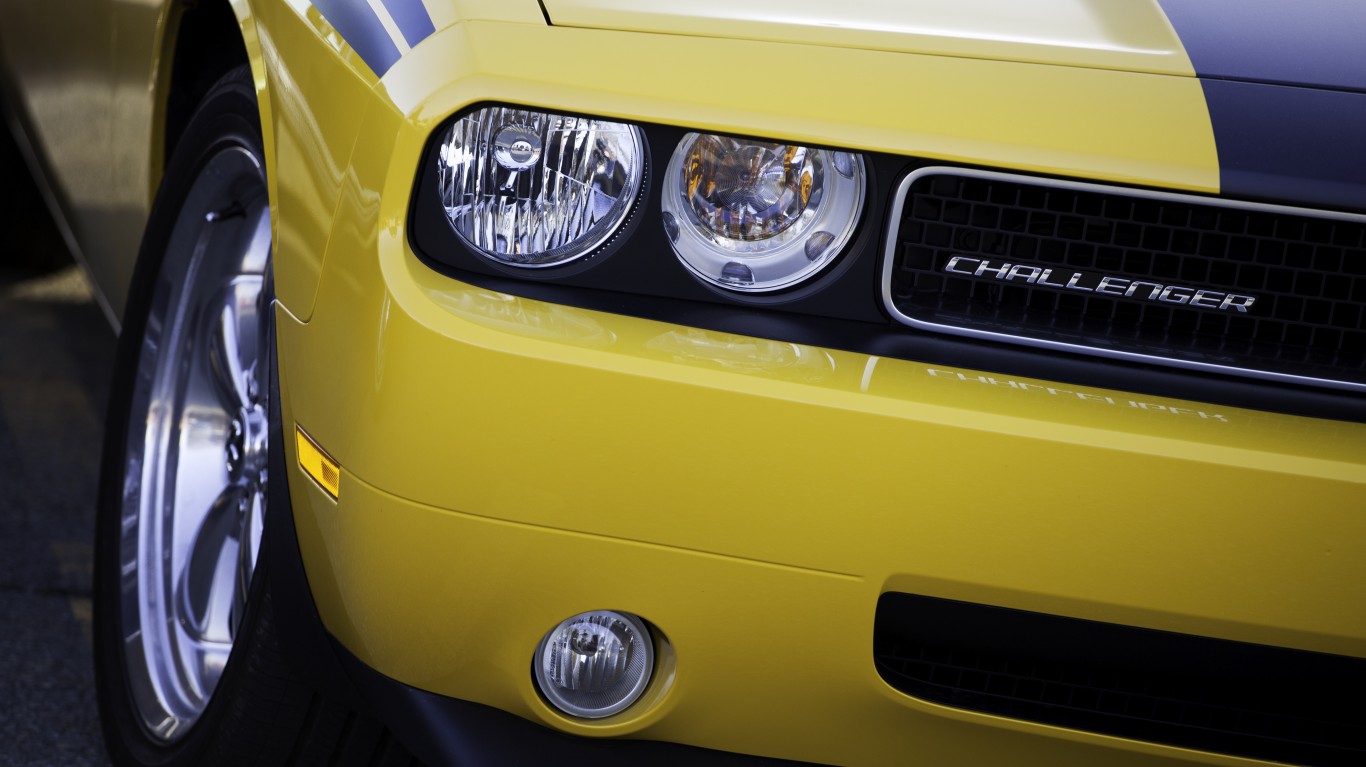
8. Chrysler (2016)
> Vehicles affected: 4.6 million
> Issue: Airbags sending shrapnel into vehicle
> Components affected: Airbags
One year after Fiat Chrysler announced the recall of 4.1 million vehicles with faulty airbags, the automaker announced the recall of an additional 4.6 million vehicles in May 2016 because of the same issue. The announcement was one of a series of recalls by major automakers related to the 40 million vehicles with malfunctioning airbags provided by former Japapanese airbag manufacturer Takata. The defective airbags had the potential to blast hot shrapnel into the car when deployed, and as of 2016 had been linked to at least 11 deaths and more than 100 injuries.
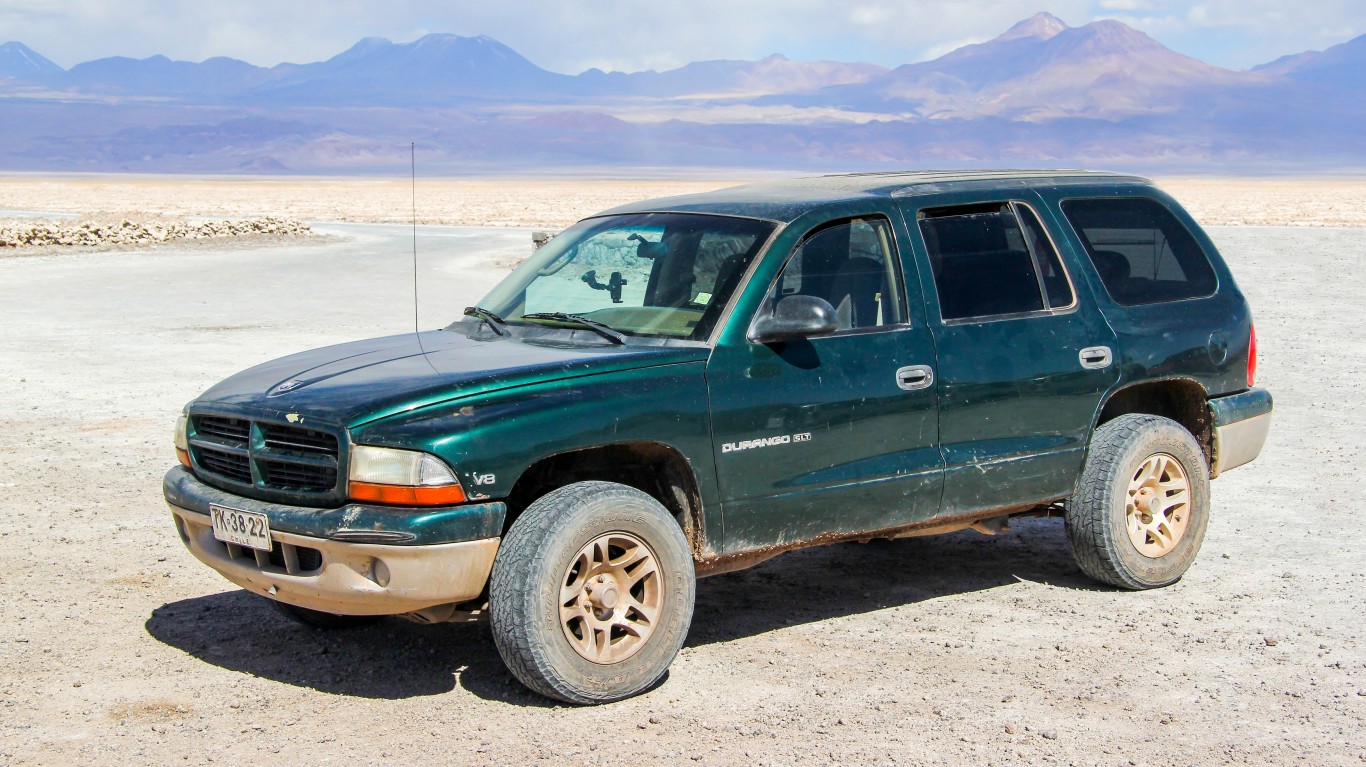
7. Chrysler (2018)
> Vehicles affected: 4.8 million
> Issue: Short circuit preventing cruise control from disengaging
> Components affected: Cruise control
Fiat Chrysler announced in May 2018 the recall of 4.8 million Jeep, Ram, Chrysler, and Dodge vehicles from the 2014 through 2018 model years. The recall was announced after the company discovered the potential for a short circuit to prevent a car’s cruise control system from shutting off. According to the company, no accidents had been attributed to the bug at the time of the announcement.
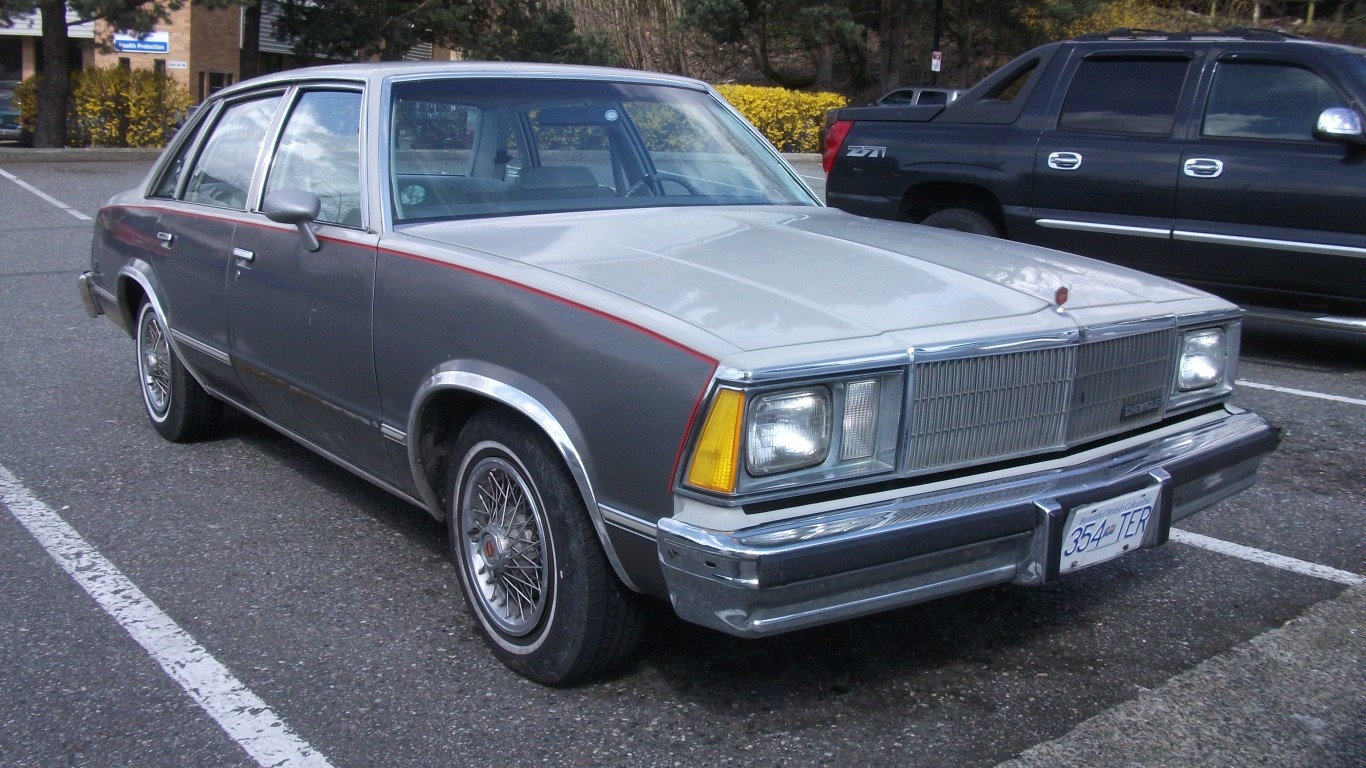
6. General Motors (1981)
> Vehicles affected: 5.8 million
> Issue: Fracturing of bolts connecting control arm to frame
> Components affected: Rear suspension
In February 1981, General Motors announced the recall of 5.8 million mid-size automobiles due to fix faulty bolts that could rust, fall out of a car’s rear suspension, and cause the vehicle to lose control. Affected models include the Chevrolet Malibu and Monte Carlo; Pontiac LeMans and Grand Prix; Buick Century and Regal; and the Oldsmobile Cutlass. At the time of the announcement, GM said it had received reports of 22 injuries related to the defective bolts.
[in-text-ad-2]
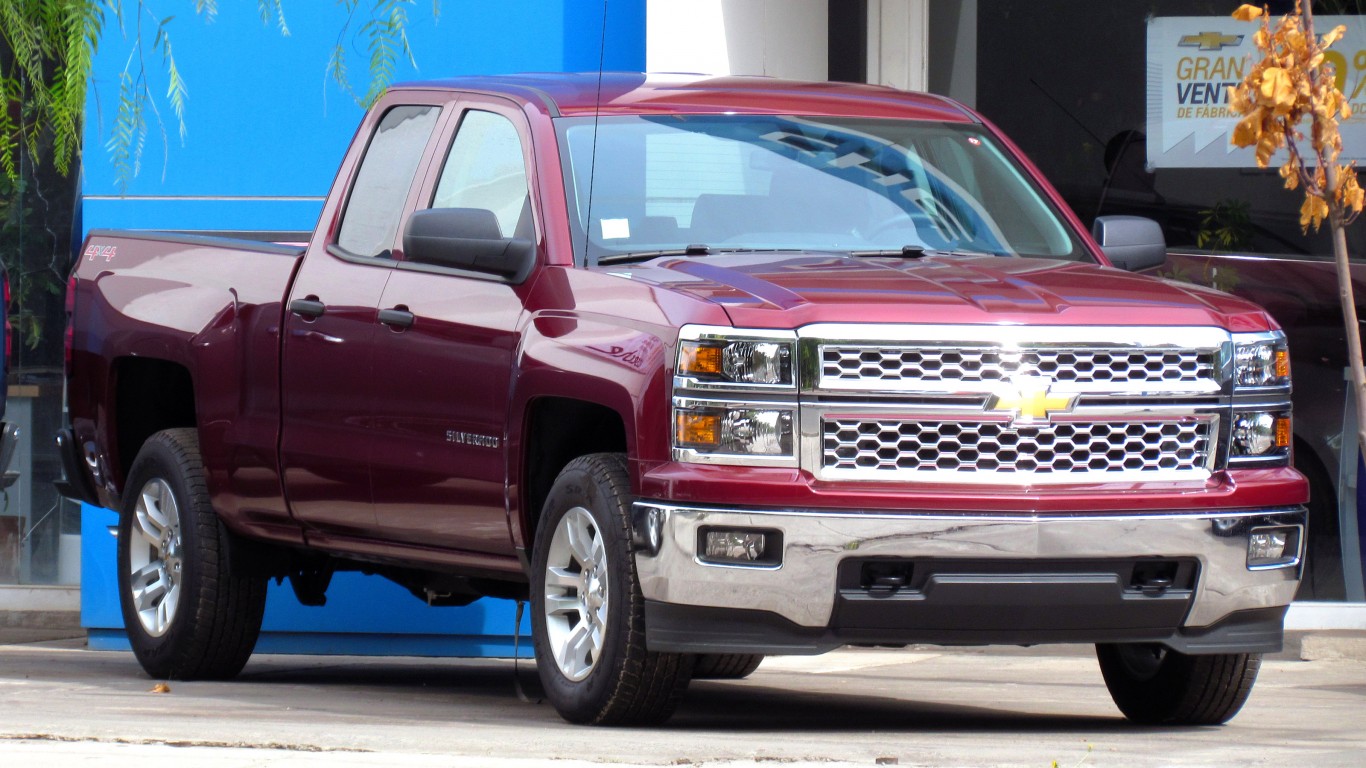
5. General Motors (2014)
> Vehicles affected: 5.9 million
> Issue: Ignition switch could shut off engine and airbags
> Components affected: Ignition
In 2014, GM announced a series of recalls related to faulty ignition switches that could lead the car’s engine to shut off and prevent the airbags from deploying. The recalls involved many of GM’s most popular, best-selling models, and to date they have been linked to at least 124 deaths.

4. Honda (2015)
> Vehicles affected: 6.3 million
> Issue: Airbags sending shrapnel into vehicle
> Components affected: Airbags
Honda recalled a total of 6.3 million cars with faulty airbags in 2015. When deployed, the defective airbags had the potential to blast shrapnel into the vehicle, striking the driver and passengers. The airbags were made by former Japapanese airbag manufacturer Takata, which had supplied the malfunctioning airbags for some 40 million vehicles around the world. As of 2016, the recalled airbags had been linked to at least 11 deaths and more than 100 injuries.
[in-text-ad]
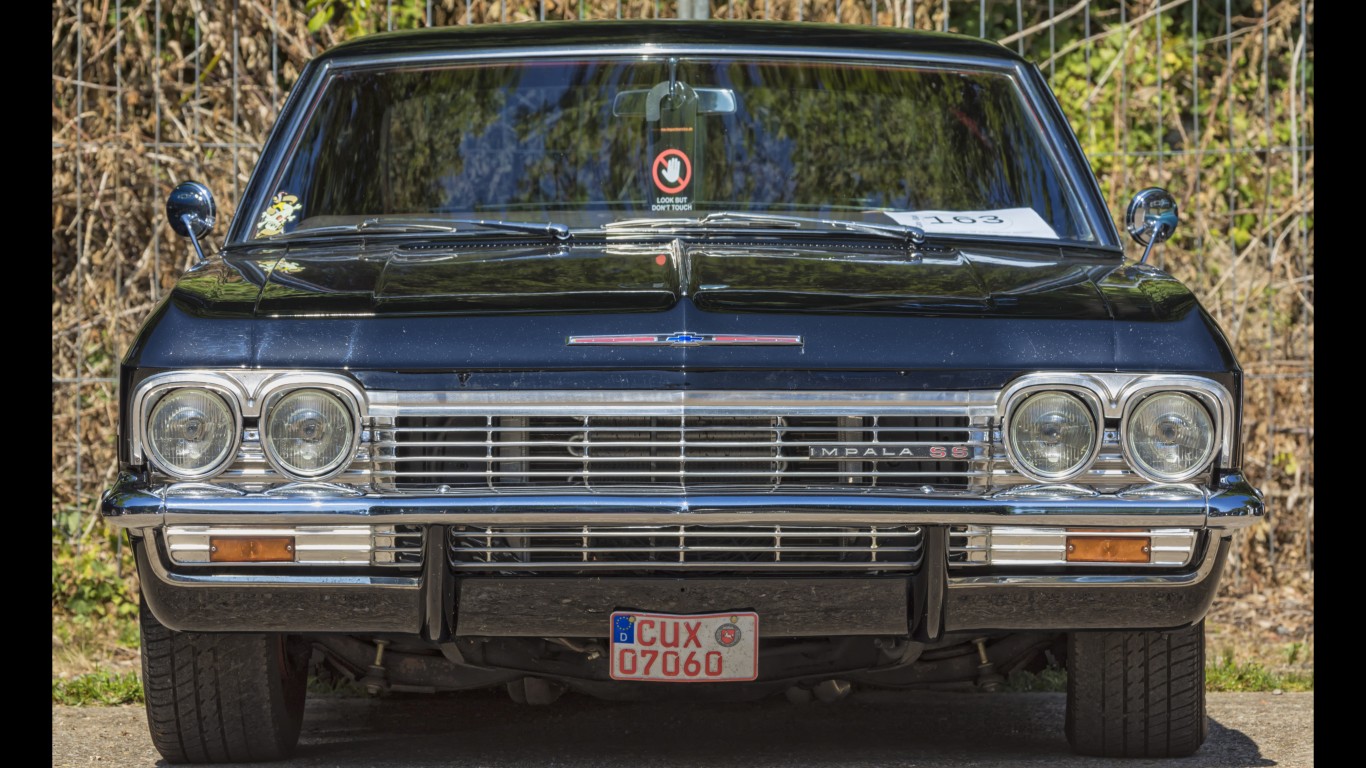
3. General Motors (1971)
> Vehicles affected: 6.7 million
> Issue: Separated motor mount causing engine to lift
> Components affected: Engine
In December 1971, General Motors announced that it would recall 6.7 million Chevrolet automobiles to fix faulty engine mounts. According to owner accounts, the rubber and metal mounts meant to separate the engine from the vehicle frame had been breaking, causing the engine to lift several inches. In some cases, the elevated engine would cause the car to accelerate and the brake lines to stop functioning.
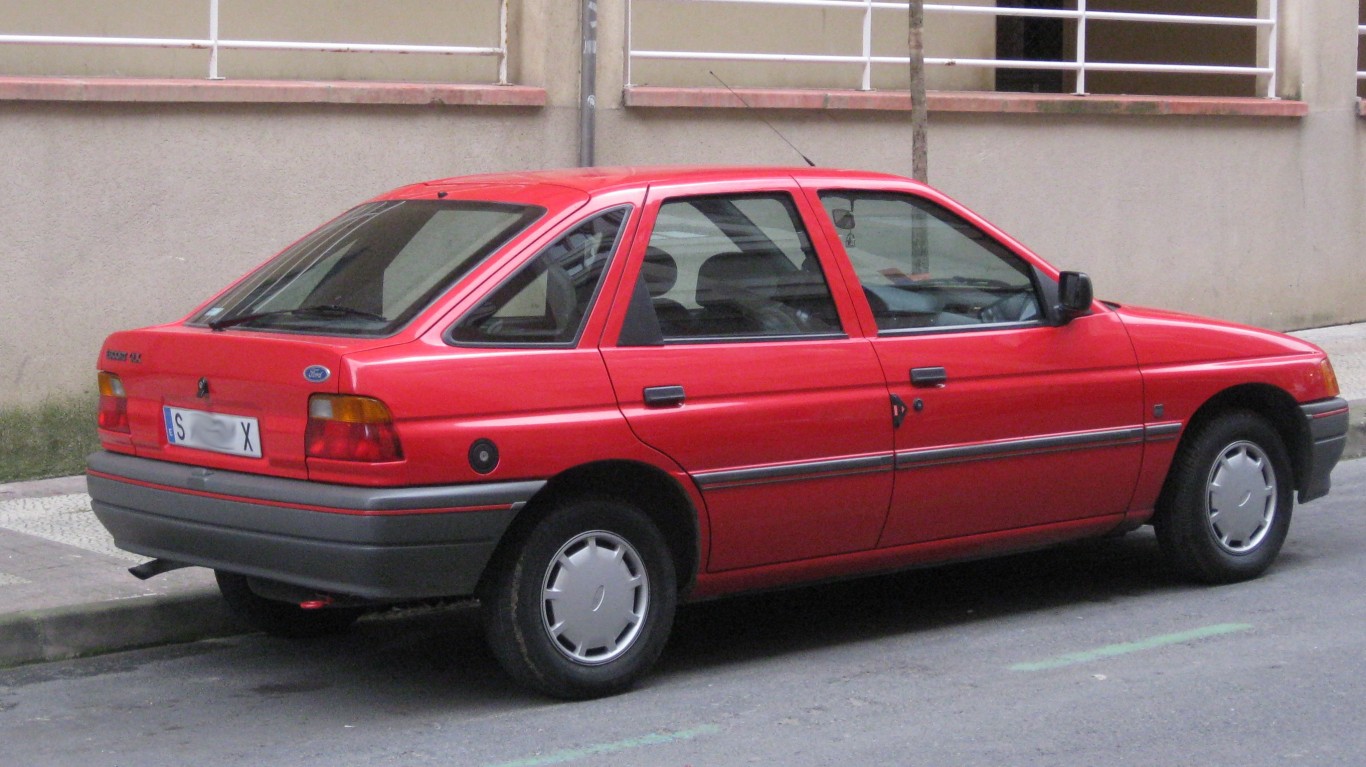
2. Ford Motor Company (1996)
> Vehicles affected: 7.9 million
> Issue: Ignition switch short circuiting
> Components affected: Ignition
Ford Motor Company recalled in April 1996 nearly 8 million cars and trucks with short-circuiting ignition switches, the bulk of the company’s production stock for the 1988 through 1992 model years. The recall came after Ford had received over 1,100 complaints of fires caused by short-circuiting ignition switches, which caused a known 30 injuries throughout the United States and Canada. According to documents obtained as part of a class action lawsuit, Ford was aware of the potential for ignition switch fires for at least a year prior to the recall.
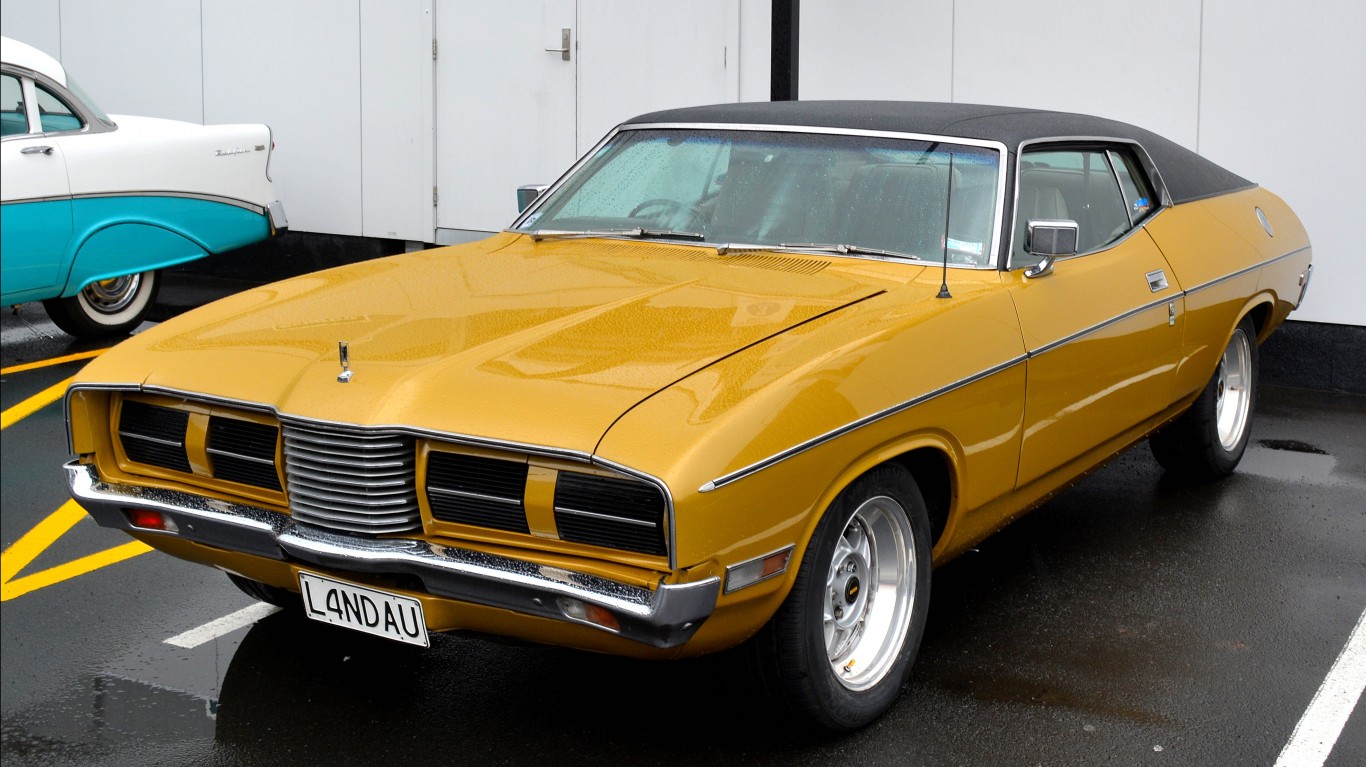
1. Ford Motor Company (1981)
> Vehicles affected: 21.0 million
> Issue: Unexpected movement after shifted into park
> Components affected: Gear position indicator, transmission
The largest auto recall occurred in early 1981, when the Ford Motor Company announced the recall of 21 million Ford, Lincoln, and Mercury vehicles from the 1970 through 1980 model years. The recalled vehicles contained defective parking gear that could fail to engage after the vehicle was shifted to park, often leaving the car in reverse. Instead of issuing repairs, Ford provided car owners with a dashboard sticker warning them to set the parking brake and shut off the ignition before exiting the car, lest “unexpected and possibly sudden vehicle movement” occurs. At the time of recall, the U.S. Department of Transportation had linked the malfunctioning parking gear to 6,000 accidents resulting in 98 fatalities and 1,710 injuries.
Find a Qualified Financial Advisor (Sponsor)
Finding a qualified financial advisor doesn’t have to be hard. SmartAsset’s free tool matches you with up to 3 fiduciary financial advisors in your area in 5 minutes. Each advisor has been vetted by SmartAsset and is held to a fiduciary standard to act in your best interests. If you’re ready to be matched with local advisors that can help you achieve your financial goals, get started now.
Thank you for reading! Have some feedback for us?
Contact the 24/7 Wall St. editorial team.
 24/7 Wall St.
24/7 Wall St. 24/7 Wall St.
24/7 Wall St.


